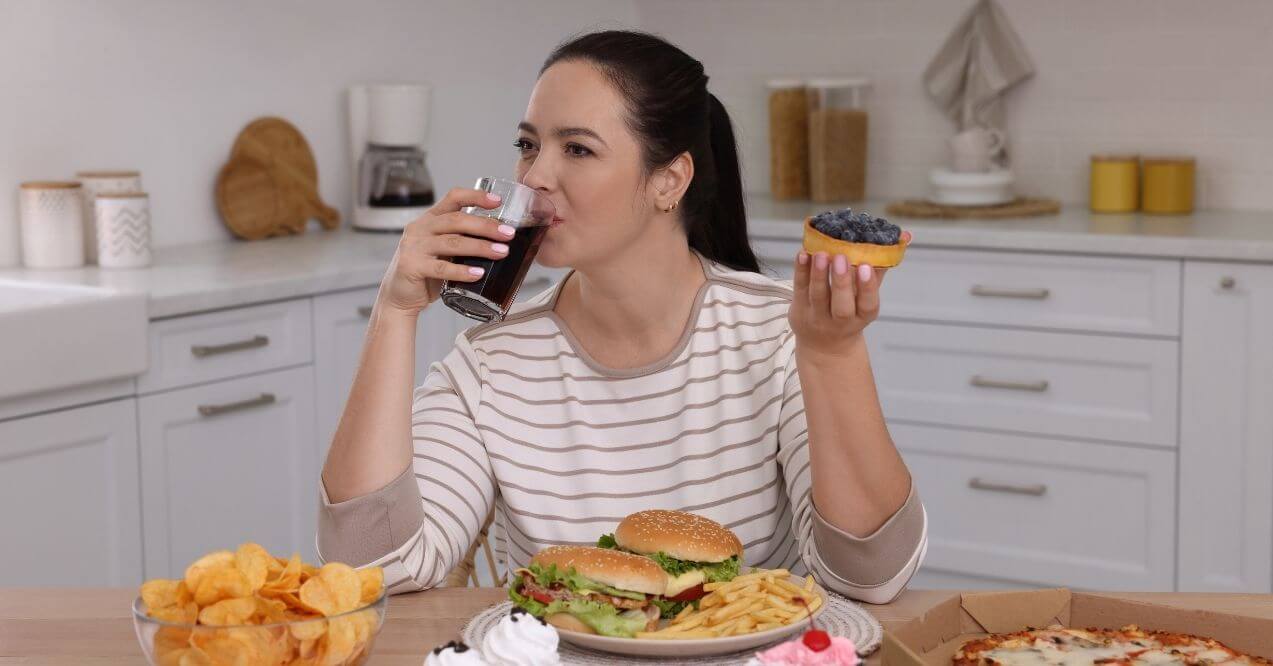Does Wearing Glasses Make Your Eyesight Worse?
Medically reviewed by our experts
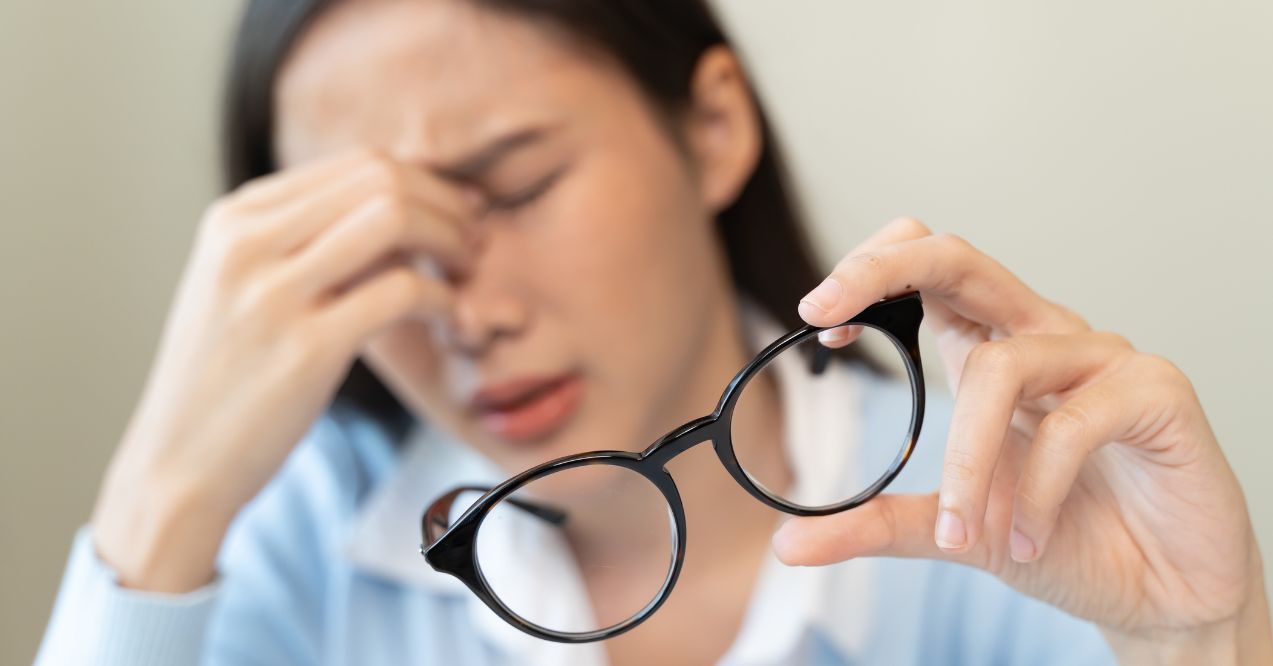

You might hear someone say they don’t want to start wearing glasses because they’ll become dependent on them, or notice that their vision seems worse when they take their glasses off.
However, does wearing glasses make your eyesight worse? This concern is common, but is it based on facts or just a persistent myth? In this article, we’ll unpack the truth about glasses and vision changes, so you can make informed decisions about your eye health.
Does Wearing Glasses Make Your Eyesight Worse?
The short answer is no. Glasses don’t weaken your eyes or make your vision deteriorate faster. They work by adjusting how light enters your eye and focuses on your retina. Think of glasses as a tool that helps your visual system work more efficiently—like using a magnifying glass to read small print. The lens in your glasses doesn’t alter your eye’s physical condition; it simply redirects light rays to compensate for your eye’s unique shape.
What often happens is that once people start wearing correctly prescribed glasses, they notice the stark difference between corrected and uncorrected vision. This awareness can make uncorrected vision seem worse than before, even though nothing has actually changed. Your natural vision hasn’t worsened—you’re just more aware of how unclear it was all along.
Age-related changes in vision happen to everyone, whether they wear glasses or not. As we grow older, does your eyesight improve with age becomes a relevant question. Unfortunately, most vision changes with age involve declining abilities rather than improvements, but this isn’t related to wearing corrective lenses.
Why is My Eyesight Getting Worse Even with Glasses?
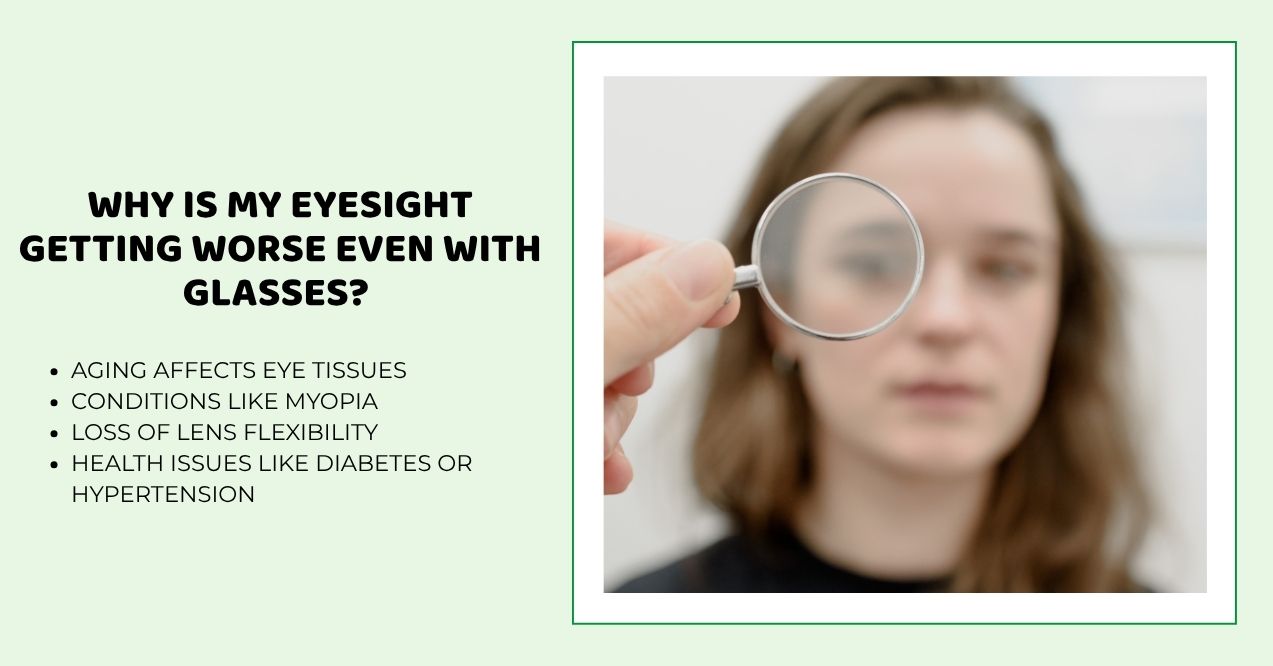
People who wonder “why is my eyesight getting worse?” should know that vision naturally changes throughout life due to various factors:
- Natural aging processes that affect eye tissues
- Progressive conditions like myopia (nearsightedness)
- Changes in the eye’s lens flexibility (presbyopia)
- Underlying health conditions like diabetes or hypertension
When your prescription needs adjustment, it’s not because your glasses have weakened your eyes—it’s because your eyes would have changed regardless. Many people start paying more attention to their vision quality after getting glasses, making them more likely to notice subtle changes that were always occurring.
Some also wonder: does wearing glasses improve eyesight over time? Glasses don’t cure or reverse vision problems; they simply correct your current refractive error, allowing you to see clearly. Think of it this way: if you’ve been squinting to see clearly for years and then get glasses, you become accustomed to clear vision. When your eyes naturally change slightly, you notice it immediately, whereas before you might not have detected these small shifts in your already blurry vision.
Can Wearing the Wrong Glasses Harm Your Eyes?
Many people worry about what happens if you wear glasses that are too strong or otherwise incorrect for their vision needs. Wearing the wrong prescription typically won’t cause permanent damage to your eyes, but it can lead to uncomfortable symptoms:
- Headaches and eye strain
- Dizziness or nausea
- Blurry vision
- Difficulty focusing
These symptoms occur because your visual system is working overtime to compensate for the incorrect prescription. It’s similar to how your muscles might ache after maintaining an awkward position—uncomfortable, but not typically harmful in the long term.
Many people wonder, are reading glasses bad for your eyes if the prescription isn’t perfect? For children, whose visual systems are still developing, wearing significantly incorrect prescriptions for extended periods may potentially affect normal visual development. This is why regular eye exams are particularly important during childhood and adolescence.
For adults, an incorrect prescription mainly affects comfort and clarity rather than causing your “eyes are getting worse” in a structural sense. If your glasses don’t feel right, an optometrist can help determine if you need an adjustment.
Tips for Maintaining Healthy Vision with Glasses
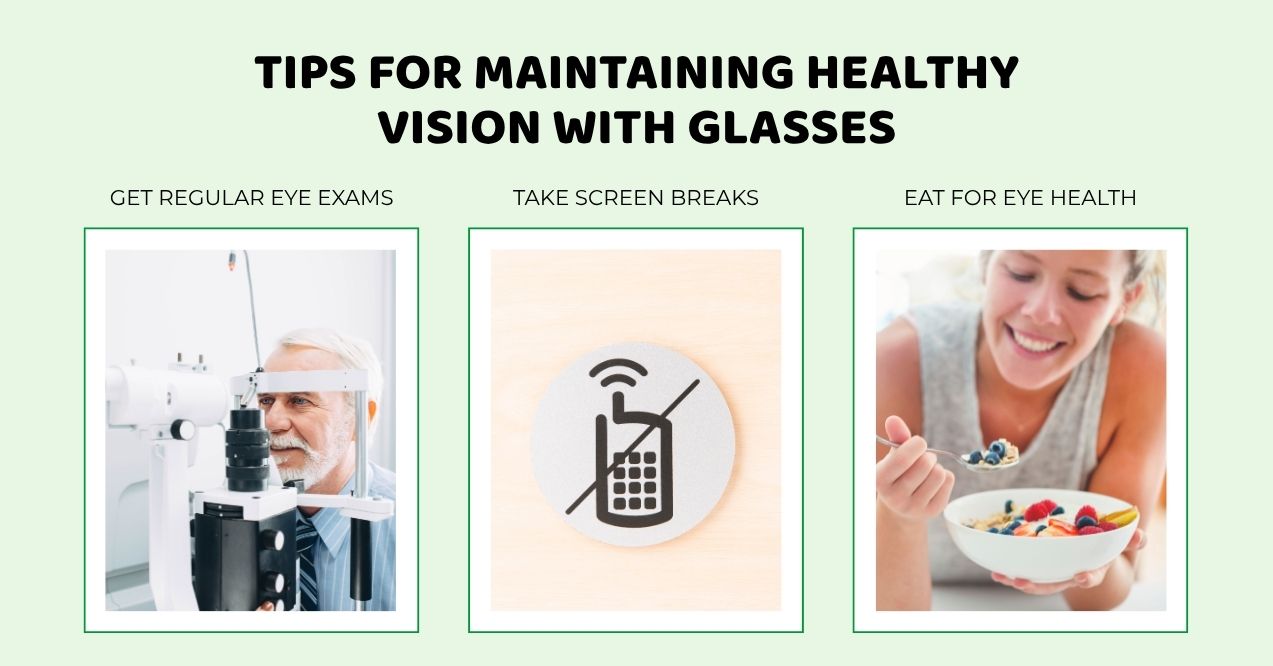
Whether you’re new to glasses or have worn them for years, certain practices can help maintain your vision health. None of these tips will reverse natural vision changes, but they may help minimize discomfort and potentially slow certain vision issues from worsening rapidly.
1. Get Regular Eye Exams
Annual eye exams ensure your prescription remains accurate as your vision naturally changes. These check-ups can:
- Catch vision changes early before they cause discomfort
- Screen for eye conditions that may affect vision
- Ensure your glasses provide optimal correction
For adults over 40, regular exams become even more crucial as age-related vision changes accelerate. Your eye care professional can track changes over time and adjust your prescription accordingly.
2. Take Screen Breaks
Digital devices emit blue light that may contribute to eye fatigue and strain. Implementing the 20-20-20 rule can help reduce digital eye strain:
- Every 20 minutes
- Look at something 20 feet away
- For at least 20 seconds
This simple practice gives your eye muscles a chance to relax and reset, potentially reducing symptoms like dryness and fatigue that often accompany extended screen time.
3. Eat for Eye Health
Nutrition plays a significant role in maintaining healthy vision. Foods rich in certain nutrients support various aspects of eye health:
- Orange vegetables (carrots, sweet potatoes) contain vitamin A
- Leafy greens (spinach, kale) provide lutein and zeaxanthin
- Berries and citrus fruits offer vitamin C
- Nuts and seeds supply vitamin E and omega-3 fatty acids
A balanced diet with these foods may help support your eye health alongside proper vision correction with glasses. Just as important as adding eye-friendly nutrients is avoiding the worst foods for eye health, such as sugary drinks, fried foods, and processed meats, which may contribute to inflammation that affect vision over time.
Our SightMax supplement contains essential nutrients like lutein, zeaxanthin, and bilberry extract that may support long-term eye health. Regular use of SightMax along with proper vision care practices can be part of a comprehensive approach to maintaining eye health. The antioxidants in this formula help against oxidative stress that naturally affects aging eyes.
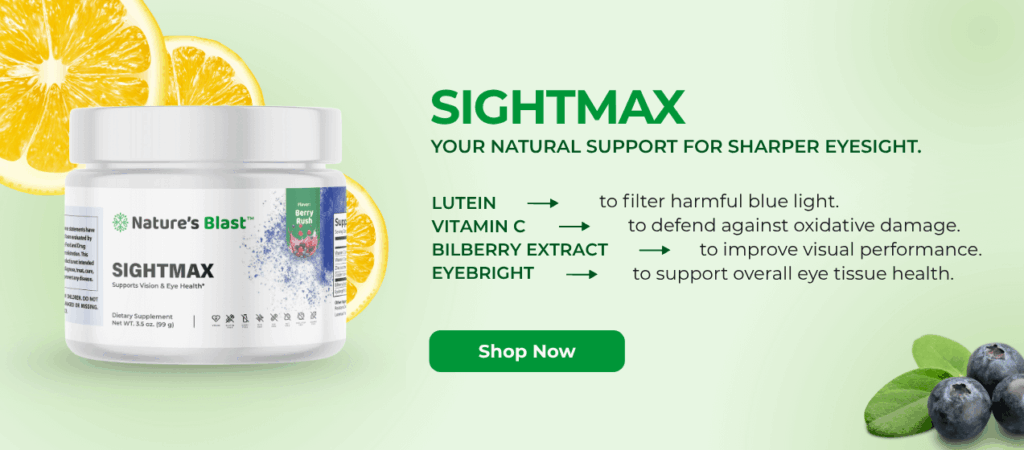
Combining good nutrition with eye exercises to improve vision and consistent use of glasses creates a balanced approach for maintaining eye comfort and clarity.
Conclusion
The belief that wearing glasses weakens your eyes is a persistent myth without scientific backing. Glasses simply correct vision problems—they don’t cause them to worsen. Natural aging processes, genetic factors, and certain health conditions are the primary drivers of vision changes throughout life.
If you notice changes in your vision while wearing glasses, it’s not because the glasses have weakened your eyes. It’s more likely that your visual system is continuing to change naturally, and your prescription needs updating to match these changes.
Taking care of your eyes through regular exams, healthy habits, and proper nutrition provides the best foundation for maintaining vision health throughout life. Glasses are a tool to help you see clearly—not something that compromises your eyes’ natural abilities.
Wearing overly strong glasses may cause headaches, eye strain, and dizziness. While uncomfortable, this rarely causes permanent damage in adults. If your glasses feel too strong, consult your eye care provider for a prescription check.
Glasses improve vision while you’re wearing them but don’t permanently change eye structure. They correct refractive errors by redirecting light properly onto your retina, providing clearer vision only during use.
Reading glasses aren’t bad for your eyes. They help people with presbyopia see close objects clearly. Using appropriate reading glasses reduces eye strain and makes near tasks more comfortable without causing harm.
FAQ
References


